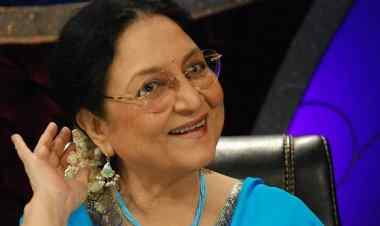WHO IS A MISFIT?
Dr. Shoma A. Chatterji writes an article which explores the concept of a "misfit" in society.

Who is a ‘misfit’? The question is difficult to answer by the layman because at different points of time in our life, we feel a misfit within the family and within the larger society. But there is a psychological definition too which says: “A misfit is an individual who responds critically to the dominant norms constructed by society, ‘dominant norms’ - meaning standards of behaviour set by society and social institutions." Parents and teenagers wrongly interpret the latter’s behaviour to be contrary to social norms. But this is a wrong notion. Teenage is a time when the body that grows faster than the mind. The growing child finds it difficult to cope with his growing body with his lesser-grown mind and so behaves in a manner that appears to be irrational, sometimes even leading to spurts of violence. But a teenager is not a misfit. He is passing through growth pangs, which go away as soon as he grows older.
Introverts could perhaps offer the classic example of being misfits. They find it difficult to converse with people, strike friendships and keep to themselves even within the close circle of the family. It is not that they deliberately seek to remain secluded. This evolves into a personality problem, which might call for psychological counselling. However, society does not look upon this as ‘abnormal’ and thinks this behaviour is typical of a certain kind of personality, brushing away the need for counselling.
The film industry is replete with such misfits who, despite talent and perseverance, could not make it in films. The problem is that we hardly remember them as they have been failures in establishing themselves in films. The examples spread over the years are so many that one would need to dig into one’s memory even to remember their names. Let us take the example of Rehana Sultan who made an earth-shaking debut in B.R. Ishara’s Chetna. This was in 1971. But despite having bagged the National Award for Best Actress for her sterling performance in Dastak soon after she could not make it in films. Her coactor in Dastak was Sanjeev Kumar who grew to become a great actor.
B. R.Ishara himself who used to wait at tables at Bombay’s Sreesound Studios near Dadar Railway station turned out to be a very off-beat director with a string of very offbeat films petered out after his films began to flop one after another till he passed away. He later married Rehana Sultan but none of his films could repeat the popularity of Chetna. Many years later, Rehana Sultan played a key role in a thriller directed by Vijay Anand but the film turned out to be a flop and that marked the finale to her career as an actress.
Sohail Khan entered Bollywood in the year 2002 with the film 'Maine Dil Tujhko Diya', but his debut film proved to be a flop and he got a big shock with his entry into Bollywood. Not only this, despite all his efforts his first 5 films proved to be flops at the box office.
Friends, family members and institutions misunderstand these misfits and label them under personality types like ‘snobs,’ ‘nerds’ and ‘aliens.’ Some might feel that a person is abnormally shy but this is not the truth. They are misfits because they do not compromise or even pretend to compromise with fellow human beings. They are not prepared to amend their behaviour in keeping with social norms and then go ahead and act as if they are ‘different’ so ‘ordinary’ people cannot accept them! Lack of interaction with others poises serious social problems for the child or adult who behaves in this way. For some people, it is said to come naturally but for most of them, the family or early schooling is at the root of the problem. Dr. Amit R. Basu, Mental Health Professional based in Calcutta, says, “The family is a critical factor where parents and elders insist on adhering to norms and failing to understand the situation from the misfit’s point of view. All such norms and codes of conduct do not necessarily make for good value learning. Parent groups in the 35-45 group are anxious to strike a balance between their desire to be ‘liberated’ and ‘strict’ at the same time. They desperately try to rationalize their values and impose these on the next generation, jumping the age factor which is not right.”
The single-child norm within urban Indian families in India and abroad could be another reason. When both parents work outside the home, the single child is left to fend for himself for a major part of the day. There are greater chances of his learning to live alone than if he had a brother or sister to play and share joys and sorrows with. If he lives alone till the age of say, five, he might find it really difficult to interact with other children and with teachers when he is suddenly thrown into a ‘major’ crowd of 20 or 25 children of his age and with another parent figure breathing down his neck! Most children jump at this opportunity of having playmates at school. But some of them cannot cope with the sudden socialization and with time, they become misfits in society.
Today, lack of ambition is one sure sign of being a misfit. There are youngsters who have no ambition of any kind of future at all and are content with simple lives, monotonous, even dull and boring. But in a world of ever-growing cutthroat competition, a youngster minus ambition is considered a complete misfit. Why are not people like these allowed to live their lives the way they wish to and choose to? A senior mother recently confessed that it took her twenty long years to accept that her well-qualified daughter who held one high-salaried job after another, suddenly decided to up and leave and chooses to lead the life of a completely fulfilled and successful housewife. She is always short of funds as her husband is the sole earning member now but she is very very happy. But this lack of a self-earning life seems to be paying on her health negatively.
According to children themselves, the difference of opinion and in values between parents and children is another reason for a child to begin feeling that he is a misfit. A student of class XI says on conditions of anonymity, “I respect my parents’ opinions. But I feel I am more liberal in my outlook while they often cling to conservative ideas. They don’t believe in free mixing but I do. But to keep them happy, I suppress such inclinations.” This sort of thinking could lead to a distancing between parents and children. Rima, studying in Std.XII complains that her parents do not understand her. “I’d rather be a misfit than toe their line of thought or point of view. I will not give up my dreams and I will prove to them that I am right.”
Harsh has no problems relating to his parents but problems come up when he has to interact with his classmates. “I find their approach to life too superfluous, hollow and frothy. There seems to be no depth in their thinking. They never discuss their aspirations and hopes. I like to discuss pop music and films but not all the time. They are not interested in politics, even at the local level, much less what is happening in Iraq. I have to be like them to get along and I really find this a difficult task,” he says, giving away his feeling when he uses the word ‘task’ to describe a vibrant relationship like friendship. The result is that Harsh is labelled a snob and after a point, he actually likes being so labelled! He gloats in the fact that he is intellectually better than other boys and girls of his age and this false feeling eggs him on to carry on this baggage of ‘difference’ into adult life. This is one kind of legitimacy given to the ‘misfit’ in society, which harms the person forever.
Abhijit feels that even when he tries to communicate, his words are twisted and misinterpreted. “People should try and understand and cooperate with me. To be a misfit among your closest and dearest friends is really awful. Your tastes, sentiments and sensibilities set you apart from others. It is happening to me all the time and my world is so different from them that they always ridicule and mock me. I have no sympathetic listener to share my sorrows with. I am actually a misfit among people who mean the world to me. All I wish is for the world to be more reassuring and for people to be kinder,” says Abhijit. He creates a shell around himself and retreats into it.
The burden of education and the pressures of an upwardly mobile professional life offer few options for socializing in the world of today. So, visiting relatives is replaced with watching television with the remote in your hand. The telephone, the laptop, the Internet, e-mail and social media sites are the only ways left in which to socialize. The weariness of a grinding weekday makes visiting friends a distant dream. Socialization at an informal level will soon become a thing of the past. What else can one expect of this kind of society except a whole generation of misfits?
Many of these misfits have immense potential to make it big one day. All they need is someone to support them and stand by them like Rose supported Mary in What Katy Did At School? In one-way or another, there is a misfit hiding within each single one of us. It will only need a compete cutting off from social relationships, a lack of moral and emotional support from family and friends when one needs these the most that the misfit lurking just under the surface of our smiling faces will come out and burst the balloon!
What's Your Reaction?
































































